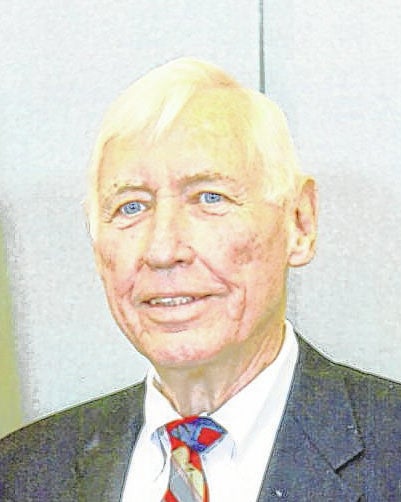LaGrange council candidates answer candidly at forum
Published 12:00 am Wednesday, October 21, 2015



LaGRANGE — At a political forum last week, candidates for LaGrange City Council presented their thoughts regarding the future of the city, its challenges, strengths and opportunities. In the interest of informing the public, the Daily News is presenting some of their answers this week, based on the seat each candidate is vying for. Today, we present incumbent City Council member Bobby Traylor and his challenger, Mark Mitchell.
The two are running for council seat 2C. Early voting is underway now and registered voters can cast ballots at the Troup County Government Center, 100 Ridley Ave., between Monday and Friday from 8 a.m. to 5 p.m.
Hogansville Mayor Bill Stankiewicz moderated last week’s forum, which was hosted by the LaGrange-Troup County Chamber of Commerce. Each candidate was given two minutes to answer the following questions, and the time was kept by both chairpersons of the Troup Republican and Democratic parties. The candidates’ answers have been pared for space and where some sentences have been removed, ellipses have been inserted. A full recording of the forum may be heard by reading this article online at www.lagrangenews.com.
What do you see as the greatest strengths and conversely challenge facing the city of LaGrange, and how, specifically, will you address those issues:
Traylor: “My thoughts on the challenges is that we have zero for the youth. We have nothing that attracts youth. We’ve got nothing to keep youth here after they graduate, and we need something that will keep our youth in LaGrange, Georgia. We’ve got THINC academy that’s coming in and has relieved a little pressure for kids graduating high school … this will help them go into a good paying job and stay in LaGrange. The other challenge is transportation. If you’ve been up Vernon Road lately, you know what I’m talking about. They are actively doing the bypass to eliminate this problem. … The other challenge that we have … is housing, I know of three corporations that their wives said they’re not living in LaGrange, we didn’t have the shopping or the housing that they would like. This is a major problem.”
Mitchell: “I see our strengths as the city of LaGrange as West Point Lake. I see West Georgia Health System, I see our small business community, LaGrange College and West Georgia Technical College as being a strength. I see our church community as being a huge strength. I see our city infrastructure and our city government as a huge strength. I see our problems as crime and the perception of crime. … Georgia has a recidivism rate of 30 percent. I’m sure LaGrange is probably close to that. Our juvenile justice system has a 65 percent recidivism rate. That’s huge. Sticking back on traffic, there are so many injuries from traffic crashes. … That’s our families that are getting hurt. In 2013, LPD reported they had 57 robberies, and they cleared 18. They reported 385 burglaries, 63 cleared. We had 81 auto thefts, and 12 cleared. … We’ve got to do something about it and that’s where my public safety background comes in.”
The city operates on a $110 million budget that includes multiple utilities and services. What prepares you to deal with and manage such a large business enterprise?’
Traylor: “… The city manager works on this budget we’ve got probably two months before he brings it to city council. When he brings it to city council, we do a line item … When he brings that budget to us, we go line item to line item and we are able to cut out major projects, capital projects. …We play a major role but our staff and our assistants do a great job in providing for us, making us look good, when the budget time comes around. But then they do the line item and the contributions. The city (employees) do not touch any of those who are requesting contributions — Red Cross, women’s shelter, whomever — it’s entirely up to the incumbents to line item that, to either approve it, cut it or increase is. So, we have the ability to control that $110 million.”
Mitchell: “I have a little bit of knowledge to share because I’ve sat through the city work sessions and most of the council meetings since January. I was in on the review of the budget, and I watched them (the council) … in my recollection, I watched the city council go through that budget in about three hours. I didn’t see a whole lot, if anything, get cut from the way Mr. Tom Hall (the city manager) presented. I have no problem with that, because I think Mr. Tom Hall was very up front with the council. What I did see was $1.3 million of requests come into the city council, and if I remember right about $300,000 was cut out of $1.3 million. … I see a lot of stuff you could cut out of that instead of just $300,000.”
The city council has allocated funds in support of the race reconciliation initiative in Troup County. First, how would you characterize the state of race relations in Troup County and do you believe the initiative is worth while?
Traylor: “The funds that we allocated was $50,000. If $50,000 will get peace, it’s a cheap price to pay. …They (the race reconciliation program) take 30 people who come from poverty, to the banker. It’s all walks of life, the 30 people. When they sit down with each other for the first time at LaGrange College, they ask real, sensitive questions. They’ll ask the whites, what do you like or dislike about the black community, and they’ll also impose that question to the blacks. With those questions, they get real truthful by the end of the day. They have an open dialogue and they discuss the relationship. …The only way you can solve a problem is with dialogue. You’ve got to come from the heart, you’ve got to reach across the aisle, you’ve got to understand where each one comes from and where we want to go.”
Mitchell: “I was fortunate enough to get to go to the first two sessions. Whether it was right or wrong to spend $50,000 of tax payer dollars, I’m not sure. I do know that there’s issues on both sides. I do know this, too. I know that it doesn’t matter if it’s the grandmother, the mother, all of our children need an education in order to get a job and make something. It takes friendships and trust on both sides for the good of the cause. What I saw in the class, that’s what we were doing. We were getting to know each other. We were shaking hands, learning each other’s first names, and to me that’s what really matters, having the trust. Its the same way with the GSP (Georgia State Patrol, Mitchell’s employer). We trust each other and depend on each other and that’s what counts.”
Earlier this year, the city of LaGrange experienced a significant increase in violent crimes and crimes directly related to street gangs. What should the city be doing to address this issue?
Traylor: “Why do kids join gangs? Identity. Power. Status. Security. Friendship. Family influence. There is gang activity in every middle school and high school, there’s no doubt about it. The other thing that comes to mind is 75 percent of all violent crimes in LaGrange and Troup County are attributed to street gang activity. That’s high. … (We should have) routine education and training of staff (in schools), apply discipline in a timely, firm, fair and consistent manner. No exceptions. In the classroom, there is too much disruption and the teachers have no way to control it. We should encourage students to seek out help when they’re feeling threatened, and we all need to be vigilant. We all see what’s going on.”
Mitchell: “My perception of this is maybe a little different, because I have a seventh grader at Garner Newman Middle School. Her education is just as important as the person who is acting up in class. At some point, we have to stand up and say, ‘your behavior is not going to be acceptable.’ Period, no matter what color you are. LaGrange (Police Department) has two investigators assigned to the gang intelligence, and they suspect there are about 300 or 350 gang suspects in Troup County. … We’ve got gang activity in every single middle school and high school in Troup County. … What are we going to do about it as a city council? What role to we play? Give them (law enforcement) what they need. They’ve got to have support from our juvenile courts and school tribunals have got to step up.”






